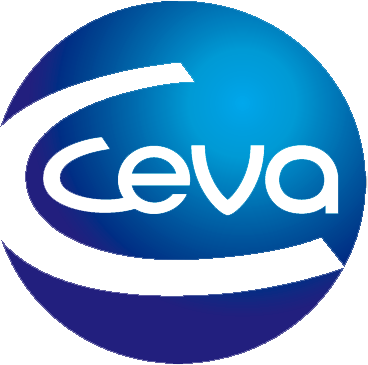Developing a robust, high-yield cell line is a foundational step in your biopharmaceutical journey. At FyoniBio, we offer a flexible and scientifically grounded approach to mammalian cell line development—designed to help you achieve optimal bioactivity, productivity, scalability, and regulatory readiness from the start.

At FyoniBio, we offer a unique portfolio of custom-tailored mammalian cell line development services that leverage our CHO and human versatile platforms and cell lines along with our process development expertise to deliver exceptional results.
Whether you’re developing a monoclonal antibody, bispecific, or complex glycoprotein, our integrated platform strategy helps you select the best expression system based on your molecule’s characteristics and development goals.
Our robust cell line portfolio includes:

Mammalian Cell Line Development Services
Based on classical CHO-K1, CHO-GS-KO, and CHO-DG44 cell lines, designed for high-yield production.
A glycoengineered CHO-K1 FUT8 knock out cell line technology for production of afucosylated monoclonal antibodies.
Our CHO cell line development workflow is built to adapt to your project. You’ll get a transparent and reliable process based on established CHO expression systems, with support that stays aligned with your goals from start to finish.
Key Benefits
GlycoExpress® (GEX®) is our human expression platform for proteins that benefit from authentic human post-translational modifications (PTMs). If your molecule requires complex glycosylation, reduced immunogenicity, or a reliable system for glycoprotein expression, this platform gives you the flexibility and support to get there.
Toolbox for high yield production of human glyco-optimized biopharmaceuticals
Flexible and Regulatory-Ready
Our cell line development services are built to deliver high-performing clones with excellent quality attributes, while offering the flexibility and support you need to succeed at every stage. Every project includes:
01
Benefit
Full traceability to meet EMA and FDA regulatory standards
02
BENEFIT
Commercial freedom with no ongoing fees
03
BENEFIT
Ensures smooth tech transfer to yoour GMP manufacturing partner
Every biopharmaceutical is unique—and so is our approach. We support our clients with a rigorous, stage-gated development workflow designed to deliver high-performing, scalable cell lines. To accelerate timelines while ensuring quality, we can integrate a set of quality analytics—such as purity, PTMs, and glycan profiling—to verify product integrity at the early stage of cell line development.
We also offer customized, fast-track host cell line feasibility studies that allow you to evaluate expression performance across our versatile platforms before full project commitment. This empowers you make confident, data-driven decisions and move forward with the optimal strategy for your biopharmaceutical development.
With our tailored, collaborative approach, we help you maximize your product’s potential—cost -effectively, reliably, and with expert guidance at every step.

Each project is unique, and we take this into account to tailor our services to your specific needs. At FyoniBio, every individual project is meticulously planned to align with the customer’s specifications, costs, and timelines. This is why the project plan, consisting of one or more work packages, is designed with flexibility in mind. It can be discussed and adapted as needed to ensure it meets your expectations. Get in touch with us and discuss the specific requirements of your project.
While CHO cells often demonstrate remarkable productivity, some proteins simply do not perform well in this rodent system. In such cases, we have shown that difficult-to-express proteins can be more effectively expressed in our human cell lines. Furthermore, with these human cell lines, your protein will carry exclusively fully human post-translational modifications. This is particularly advantageous for therapeutic applications, as it can reduce immunogenicity and enhance protein activity.
The capabilities of CHO cells range from high mannose structures to fucosylated complex N-glycan structures with multiple antennae. A notable characteristic of CHO cells is their high sialylation in an α2,3 linkage. In contrast, GEX® cells exhibit comparably lower levels of high mannose structures. Moreover, the capping of N-glycans with sialic acid can be fine-tuned by selecting a specific GEX® cell line, and process parameters during production can be adjusted to refine distinctive glycosylation characteristics.
A significant difference between the two cell lines is the unique ability of GEX® cells to produce N-glycans with bisecting GlcNAc, which plays a critical role in the efficiency of mAbs. While sialic acids in CHO-derived material are exclusively linked in the α2,3 conformation, GEX® cells can produce both fully human α2,3 and α2,6 linkages. Additionally, CHO-derived material contains both NeuAc and NeuGc, whereas GEX® cells produce only NeuAc.
The goal of each downstream process is to get rid of host-cell proteins and DNA, eliminate possible virus contamination, and deplete aggregated or inactive target protein. Preserving functionality must always be kept in mind.
For classical IgG1 molecules a platform downstream process is available which is adjusted to the individual mAb in a short and cost effective manner.
The capability of CHO cells ranges from high mannose structures to fucosylated complex N-glycan structures with up to multiple antennae. A general characteristic is a high sialylation in α2,3 linkage. For GEX® cells comparably lower amounts of high mannose are observed. The capping of N-glycans with sialic acid can be adjusted by selecting a different GEX® cell line. Additionally, process parameters during production are fully adjustable to meet specific needs. For the CHOnamite® and GEX® platforms, an RCB can typically be obtained after 16 or 20 weeks, respectively.
What We Deliver

Erica Kerkvliet, VP R&D
Pharming Group N.V.

Francois Reynier, R&D Project Leader
Ceva Santé Animale

Pierre Dönnes, Co-founder & VP Neoantigen Discovery
Strike Pharma AB
Need expert support for your cell line development program? Contact our scientific team to explore how we can help.
We typically respond within 24 hours.